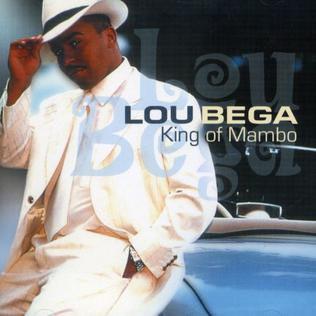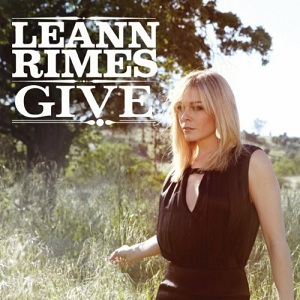
David Lubega, better known by his stage name Lou Bega, is a German recording artist. His 1999 song "Mambo No. 5", a remake of Pérez Prado's 1949 instrumental piece, reached Number 1 in many European countries and was nominated for a Grammy Award. Bega added his own words to the song and sampled the original version extensively. Bega's musical signature consists of combining musical elements of the 1940s and 1950s with modern beats and grooves.

"Walk on the Wild Side" is a song by Lou Reed from his second solo album, Transformer (1972). It was produced by David Bowie and Mick Ronson, and released as a double A-side with "Perfect Day". The song received wide radio coverage and became Reed's biggest single, despite its touching on taboo topics such as transgender people, drugs, male prostitution, and oral sex. In the United States, RCA released the single using an edited version of the song without the reference to oral sex. In 2010, Rolling Stone ranked it at number 223 in its list of the 500 greatest songs of all time.
"Mambo No. 5" is an instrumental mambo and jazz dance song originally composed and recorded by Cuban musician Dámaso Pérez Prado in 1949 and released the next year.

Lester Louis Adler is an American record producer, music executive, talent manager, songwriter, film director, film producer, and co-owner of the Roxy Theatre in West Hollywood, California. Adler has produced and developed a number of iconic musical artists, including Carole King, Jan & Dean, The Mamas & the Papas and The Grass Roots. King's Diamond-certified album Tapestry, produced by Adler, won the 1972 Grammy Award for Album of the Year, and is widely considered one of the greatest pop albums of all time.
Radio Disney Jams are a series of CD compilations of music featured on Radio Disney, a children's radio network.

"How Do I Live" is a song written by Diane Warren. It was performed by LeAnn Rimes and the extended version of the song was later featured on her second studio album You Light Up My Life: Inspirational Songs in 1997. It was also performed by Trisha Yearwood, and Yearwood's version was featured in the film Con Air.

"How Do You Do!" is a pop rock song by Swedish pop duo Roxette. It was released as the lead single from their fourth studio album Tourism on 3 July 1992. The music video was broadcast in the halftime of the UEFA Euro 1992 Final. The track was a commercial success upon release, topping the national singles charts in Norway and Spain. It also peaked at number two in several countries, including Austria, Belgium, Finland, Germany, the Netherlands, Sweden and Switzerland. It was held off the top spot in many of these territories by Dr. Alban's "It's My Life". The single was backed by several remixes created by Swedish production duo BomKrash, which consisted of Jacob Hellner and Carl-Michael Herlöfsson.
A gentleman is a man of good quality.

"Tricky, Tricky" is a song released by Lou Bega in 1999 from his debut album A Little Bit of Mambo. It became a modest hit in the USA and in Sweden, though was overshadowed by the smash-hit "Mambo No. 5". The lyrics tell of a woman that likes to spend a lot of money, and how the relationship between her and a man won't work.

"I Got a Girl" is a song by German artist Lou Bega. The single was the successor to his greatest hit "Mambo No. 5". In the song Bega tells that "he's got girlfriends all over the world." The single was certified Gold in Sweden.

"Mambo Mambo" is Lou Bega's fourth single from his album A Little Bit of Mambo. It became a hit only on the French singles chart where it peaked at #11 and was certified Silver, and in the Walloon singles chart where it peaked at #25.

Ladies and Gentlemen is the second album by Lou Bega, released in 2001.

"Bachata" is a song by Lou Bega. It was the first single from his third album Lounatic. The song features background vocals by the Ukrainian girl group Alibi. The song is about dancing bachata on a party and the erotic effect of this dance.

"You Wanna Be Americano" is a song by Lou Bega. It is a cover version of the Italian song "Tu vuò fà l'americano" by Renato Carosone. Bega's version starts with an excerpt from "The Star-Spangled Banner". "You Wanna Be Americano" peaked at #38 on the Italian Singles Chart.

Mambo No. Sex is a 1999 album by German Eurodance band E-Rotic. Its name is a play on the popular song "Mambo No. 5" by Lou Bega, which was released seven months before this album.

"King of Mambo" is a compilation album by Lou Bega released in 2002. It includes songs from his previous albums A Little Bit of Mambo' and "Ladies and Gentlemen".

"Mambo Mambo - The Best of Lou Bega" is the second compilation album by Lou Bega released in 2004. It includes songs from his previous albums A Little Bit of Mambo' and "Ladies and Gentlemen".

"Give" is a song by American country recording artist LeAnn Rimes, that was released as the third and final single from her album Lady & Gentlemen. The song is written by Connie Harrington, Sonya Isaacs and Jimmy Yeary.
"Ladies and gentlemen" is a common salutation used in formal speeches and other public addresses. Ladies and Gentlemen may also refer to:

This is the discography of German singer Lou Bega.















